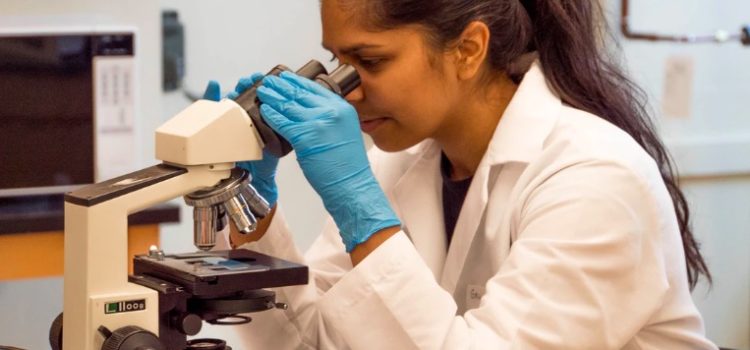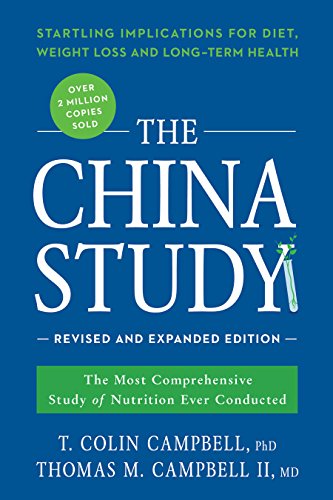

This article is an excerpt from the Shortform summary of "The China Study" by Colin Campbell. Shortform has the world's best summaries of books you should be reading.
Like this article? Sign up for a free trial here .
Is academic freedom in decline? How are health researchers and educators affected, and how does that affect the public?
We’ll cover how T. Colin Campbell, author of The China Study, felt his own academic freedom as a researcher and professor at Cornell was endangered, and how we all lose when researchers aren’t able to pursue their research projects free of influence from the government, industries, and their own administrations.
The Failed Ideals of Academia
Before we look at academic freedom in health research, let’s discuss how academic research influences other institutions.
Although Campbell highlights serious problems in the government, food and drug industries, and the medical establishment, he understands their motivations: Government officials need to be reelected to do their jobs, industries have a product to sell, and the medical establishment often depends on industries to finance education and research. They all have understandable reasons for occasionally promoting less-than-accurate data, especially when it comes to health and the food we eat.
Academia: The Source and the Link
What sector carries the most blame? According to Campbell, it’s academia. As the source of information, it may hold the most power. Food industries, medical centers, and the government rely on the research provided by the academic sector. They may exploit, disregard, bury, or manipulate that information, but academia is its origin.
Academia also has ties to these other institutions, its members helping develop health policies and working closely with the U.S. Department of Agriculture through outreach programs. It could use these ties to initiate change.
Universities are places valued for intellectual and academic freedom, collaboration, and original, unbiased research. University members are in the ideal position to influence the quality and spread of information. Are they falling short?
The Problem: Disappearing Academic Freedom
Academic freedom is on the line. How much academic freedom a professor or researcher has is often connected to his or her tenure status.
Fewer and fewer researchers have tenure track jobs. In 1980, 68% of academics were tenured or held a tenure-track position. In 2016, only 32% of academics were tenured or held a tenure-track position. (Other surveys place this number closer to 25%.)
As adjunct employees, whose jobs are unstable, most researchers are now vulnerable to the desires of their employers. They can’t always do the research they want to do, the way they want to do it. This endangers academic freedom.
While employees are vulnerable to the wishes of the administration, these administrators are in turn vulnerable to the wishes of corporations, who pay an increasingly large percentage of universities’ research costs (65% in 2006). If researchers use unconventional methods or explore unconventional topics, they don’t get funding.
Most academics are blameless slaves to this system, but the few who take advantage of it for self-interested reasons and serve corporations rather than the public make it even harder for their colleagues to speak out. Those who happily cooperate with industries may end up with more powerful positions in the university, perpetuating the cycle.
Example: Cornell and Limits to Academic Freedom
Campbell has seen free speech decline firsthand at Cornell, where he spent 40 years of his academic career.
Campbell co-founded Cornell’s toxicology program, which for years was a star of the Division of Nutritional Sciences. Cornell’s communications department spent considerable energy relaying the program’s findings to the media, and articles about Campbell’s research appeared in many popular publications.
But support from Cornell ended abruptly in 1990 when the New York Times published a story on the findings of his China Study. The China Study, one of the most extensive nutrition studies ever done, found that eating plant foods may be one of the leading determiners of health in rural China, and eating animal protein may be one of the leading causes of disease in the Western world.
The director of Cornell’s Division of Nutritional Sciences was also the vice president of the Dannon Company, which sells dairy products. Presumably, he wasn’t happy about the China Study’s findings associating dairy with disease.
Imperiled Academic Freedom: Suppressing the Results of the China Study
Top administrators at Cornell attempted to prevent access to Campbell’s findings in numerous ways. First, a university official instructed Cornell’s communication team to stop publicizing Campbell’s work because the university didn’t endorse his views. Then, when Campbell took a year off from teaching his groundbreaking course on vegetarian nutrition, the director canceled the class and the director’s successor refused to reinstate it.
Three days before a scheduled lecture by Campbell and Dr. Esselstyn, a prominent researcher of plant-based diets, the director cancelled their room reservation and the director’s staff refused to reserve another space for the lecture. (The original room remained unused during the time slotted for the lecture.)
These and other interferences confirmed Campbell’s belief that academic freedom is disappearing.
Researchers are the source of the information used by the government, food industries, and medical schools. When researchers aren’t free to pursue ideas that challenge the status quo and push science forward, what chance do the other institutions have of disseminating good information?
———End of Preview———

Like what you just read? Read the rest of the world's best summary of "The China Study" at Shortform . Learn the book's critical concepts in 20 minutes or less .
Here's what you'll find in our full The China Study summary :
- Why animal proteins (meat, milk) might cause cancer, diabetes, and other diseases
- Why the medical institution is structured to hide the truth about disease and food
- The precise diet you'll need to eat to live longer and feel happier






